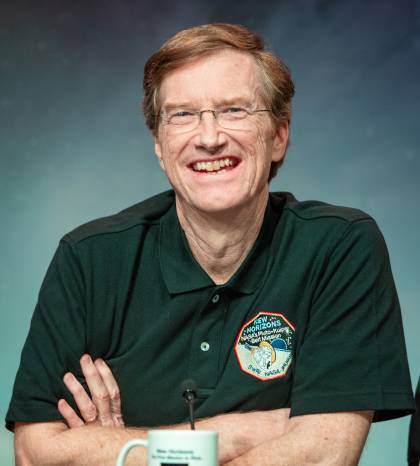Faculty Expert Profile
Harold Weaver
- Planetary Scientist
Affiliations
- Applied Physics Lab
Languages spoken
- English
Harold "Hal" Weaver is a planetary scientist and expert on comets, outer planets and Kuiper Belt objects. He is the project scientist for NASA's New Horizons Pluto mission and has led numerous Hubble Space Telescope investigations of comets.
His work on the chemical composition of comets is widely published, as is his research on planets and their moons, and the formation and evolution of planetary systems.
Weaver has been pursuing space-borne, rocket-borne, airborne, and ground-based investigations in planetary science since 1978. For his doctoral degree he performed the first systematic investigation of cometary ultraviolet emissions using the NASA/ESA International Ultraviolet Observer satellite, providing circumstantial evidence that water was the dominant volatile constituent in cometary nuclei.
In 1985-1986 he made infrared observations of Comet Halley from the NASA Kuiper Airborne Observatory, which resulted in the first unambiguous, direct detection of water in comets, and for which he was awarded the NASA Medal for Exceptional Scientific Achievement in 1988. In 1996, asteroid 1984 FN was renamed to asteroid "Halweaver" in recognition of Weaver's work on the chemical composition of comets.








